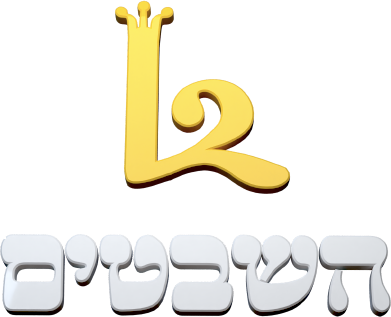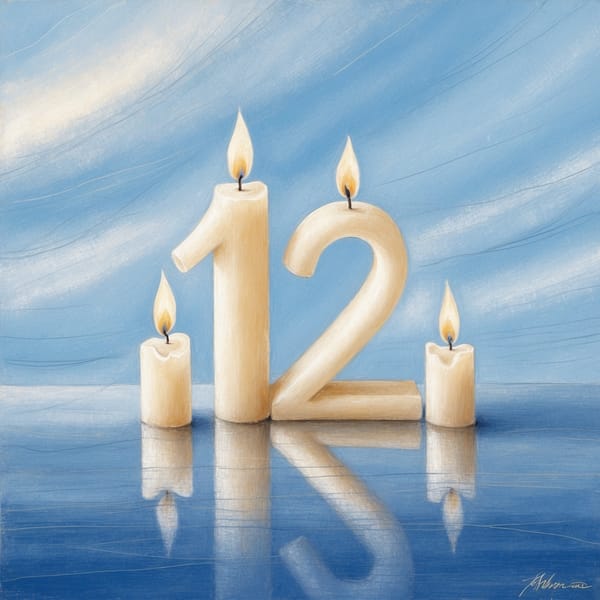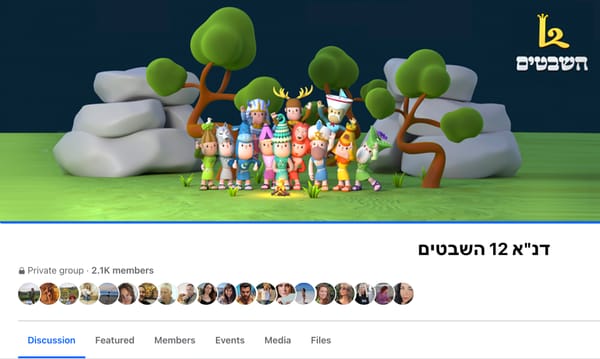12. Tribe of Binyamin

Benjamin is Jacob's youngest son, and Rachel's second son. In the Torah, the character of Benjamin is depicted in a special and emotional way. He was born on the way to Efrat (Bethlehem), the only one born within the borders of Israel, and his mother Rachel died at birth. Benjamin called him his father, and his mother Rachel called him Ben-Oni, Jacob especially attached to him, especially after Joseph's disappearance. In the story of the brothers' descent into Egypt, Benjamin plays a central role when Joseph demands that he be brought to him.
In Jacob's blessing, Benjamin is described as a "wolf of prey," an allusion to his belligerent nature. The tribe of Benjamin is known for its heroes and warriors, with the most famous figure from this tribe being Saul, the first king of Israel. Benjamin's inheritance included Jerusalem, as well as Mordechai and Queen Esther in Shushan, the capital before the Second Temple, giving the tribe great importance in Jewish history.
Greetings
Rachel's blessing at birth (Genesis 30)
"And he shall go from B'ith A'l and Yahi-'ud Kabarat Ha'aretz to Ba'wa Ephra'ta and Te'ld Rachel and Teq'esh in the ballad, and he will say to him the Mil'dat, al-Tira'i Ka'i-also-z'eh to Ḥaḥṭ
Jacob's Blessing (Genesis 49)
"Binyamin Ze'ev will devour cattle, eat until evening, and distribute booty."
The Blessing of Moses (Deuteronomy 33)
"To Beniman he said: 'The friend of God will dwell surely on him, overlap him all day and between his shoulders he does.'"
- Father: Jacob
- Mother: Rachel
- Date of birth: 11 Cheshvan
- Flag: Wolf
- Stone in Hoshen: Jespeh
- Linked colors :dark red, gray
- Nah: Jerusalemand the north (between Ephraim and Judah)
- Associated month: Kislev
- Sefirah: Tiferet
- light: repeating
- Element: The Earth in Water
- Side: West with Ephraim and Manasseh
- Desert Census Quantity: 35,400
- Day of the week: Friday
- Creation: Adam
- Star: Jupiter
- Letter: S
- Attach the name of Being: YHH YHH
- sense: sleep
- Lucky: Sagittarius
- Psalms: Chapter 8
- Organ: stomach
- Home : Travel
Positive qualities
- independence
- Son of Heroism
- Courage to be who I am
- Admiration (gave names of his children according to the travels of his brother Joseph)
- Energy
- Durban
- desire
- inquisitiveness
- Encouraging people to act
- Download to reality
- Good friends and soulmates
- Inner and outer beauty
- Movement and connection to the body
- Military capability
- modesty
- Sensuality
- Ability to forgive the environment
- Honesty
- Very high intuition
- Connected to their bodies
- Connecting to the Earth
Negative features
- Mysterious
- secrecy
- Extreme
- Silence
- envy
- Breaking boundaries
- Hideouts
- Communication difficulties
- Addiction to pleasures
- Emotional repression/escape
- Emotional manipulations
- Tendency to selfishness and need for attention

Spiritual role
The tribe of Benjamin, the youngest and last of the tribes of Israel, carries a unique spiritual role. Being the only tribe to be born in the land of Israel, it embodies hope for renewal and a steadfast home. Benjamin serves as a bridge between vision and reality, giving lofty plans a tangible form. As a master of reality, Benjamin teaches courage to be authentic, to manifest the true self. He understands that the body is a tool for spiritual awakening, and that action is the fruit of self-knowledge. Benjamin sees change as an opportunity, not a threat. It embraces the cycles of life and death, inviting us to let go of the past and dream of a new future. Thanks to him, the twelve tribes unite into one house, where the male and female are equal and complement each other. Benjamin's connection to his independence is the source of his strength. He builds stable relationships and structures out of a deep understanding of others. Benjamin instructs his brothers to listen to the inner voice, to develop their unique path to the sublime, and to bring the vision to fruition. Finally, Benjamin reminds us that the answers lie within us. It encourages a process of internal refining, of distinguishing between what is important and what is treated, and of discovering personal truth. Thus, it leads us all to a deeper connection with ourselves, with others, and with the reality around us.
Spiritual correction
Coping with complex emotions: The tribe of Binyamin is characterized by an intense duality. On the one hand, they carry a strong desire for holiness, an inheritance from their mother Rachel. Benjamin's original name, "Ben-Oni," attests to this yearning for the proximity of the Divine presence and the building of the Temple. On the other hand, they are strongly attracted to matter and carnal lust, implying by their name "members of the sex."
This tension creates two prominent archetypes in the tribe: the hedonists who indulge in the pleasures of the world, and the ascetics who choose seclusion and celibacy. In both cases, their positions tend to be firm and uncompromising. The Benjamins experience an incessant desire, which is akin to the cycle of the moon - always striving for fullness, but finding themselves returning to the starting point. Another challenge is emotional communication. Many of them are silent or shy, have difficulty expressing emotions.
An example of this is King Saul, who found it difficult to talk about his jealousy of David, which led to tension between them. The tragic story of a "mistress on the hill" (Judges 19-21) illustrates the emotional extremes of the tribe. This event, which almost led to the extinction of the tribe, remains a scar in the collective memory of the people, and constitutes a challenge to repair today. Benjamins must learn to take responsibility for their feelings and communicate them in a healthy way, avoid emotional manipulation and blaming others. Only in this way will they be able to balance the extreme extremes of their nature and realize their inherent spiritual potential.
Concealment – The Shadows of Benjamin's Soul: Like wolves on a moonlit night, the Benjamins operate in the realm of shadows. They are endowed with the ability to move between worlds - between the conscious and the subconscious, between the visible and the hidden. Contrary to the common image of the lone wolf, the Benjamins, when balanced, discover their power in connection and cooperation. The tribe of Benjamin is the walking riddle among the tribes of Israel. They are masters of emotional camouflage – you can share years of closeness with them and still feel that a nurture of their personality remains sealed and disappears. They jealously guard the hidden chapters of their life story, like a sealed book that only they hold in its key. Therefore, it was precisely in their inheritance that the most intimate place in the holy world was the Holy of Endowments in the First and Second Temples, and soon the third.
Binyamin is connected to the center of intuition in the forehead, the meeting point between inner and outer vision. As sensitive antennae, they absorb knowledge from higher worlds and translate it into tangible reality. They move carefully between the spiritual and material worlds, bridging the gap between vision and practice.
Like a wolf looking at the moon, the Benjamins always strive for the unattainable. They live in a constant movement between discovery and concealment, between light and shadow, between the known and the unknown. In doing so, they invite us to dive into the depths of the soul, explore the dark corners, and discover the treasures hidden in the depths of the subconscious.
Connection to female characters and experience with the mother: Benjamin, the last son, was born into an existential paradox - his birth was also the moment of death of his mother, Rachel. From that moment, his life was painted with shades of loss and hope, darkness and light. Orphans by birth, the sons of Benjamin found refuge in the bosom of the night. They connected to the merciful energy, the silence of the stars, the invisible worlds. For them, the womb was the last bastion of absolute security, and the transition to the material world was like exile from paradise.
In their souls, the sons of Benjamin bear Rachel's mark. In a mysterious exchange of souls, they became a living bridge between the Divine presence and the tribes of Israel, bridging worlds. Their connection to the mother figure is intense and uncompromising, sometimes to the point of dependence. But it is a complex relationship, for they carry with them the "shadow" - a Jungian term describing the repressed parts of the psyche. The Binyamins live in the shadow of unspoken guilt, a deep feeling that their very existence has taken a heavy toll.
Their experience of birth, which involves death, created in them a keen awareness of the duality of life. They range from light to darkness, between life and death, between love and loss. Their minds echo the last words of Rachel, who called her son "Ben-Oni" (Ben of Sorrow), while Jacob chose the name "Benjamin" (Ben Yemin) - a constant reminder of their power to tolerate opposites. The Benjamins invite us to look at the shadows within, to embrace the complexity of existence. They teach us that it is precisely out of the greatest darkness that the brightest light can emerge.
Sexuality and Relationships: Benjamin is a fascinating fusion of creative and procreation energies. As the 12th Spira, they embody the meeting point between the masculine and the feminine, a place where the opposites merge into a new and perfect creation. Sexuality for Benjamins is a powerful life force, an underground current that pulsates in their veins and shapes their consciousness. Their sexual energy - the primordial "potency" - is an abundant fountain of fertility and vitality, manifested with equal intensity in both women and men. However, this force, in its raw power, is fraught with danger. It threatens to flood and drown, to drag into dark realms of the "stra akhra" - the other side. Benny Binyamin's challenge is to find balance, to harness this tremendous energy into a positive creative force.
The key to this balance lies, paradoxically, in their mouths. Benjamin's gemstone, the Jespeh, implies this: "There is here" – there is power in speech. While their natural tendency is to remain silent, it is precisely the use of voice, in verbal expression, that can serve as a channel for releasing and refining the intense sexual energy. Thus, the Benjamins are called on a journey of self-discovery and balance – to learn to navigate between deep silence and loud expression, between inner longing and outer expression. In this way, they can transform their inner passion into a healing and empowering creative force, illuminating the world in a new light.

"I am here present in the region of the country and at every step appeases myself and learns independence. I know how to trust my inner intuition and know that I will find the answers from within myself, gently letting go of any attempt to hide who I am and walking with confidence and faith."
Mantra for healing – leave me alone






